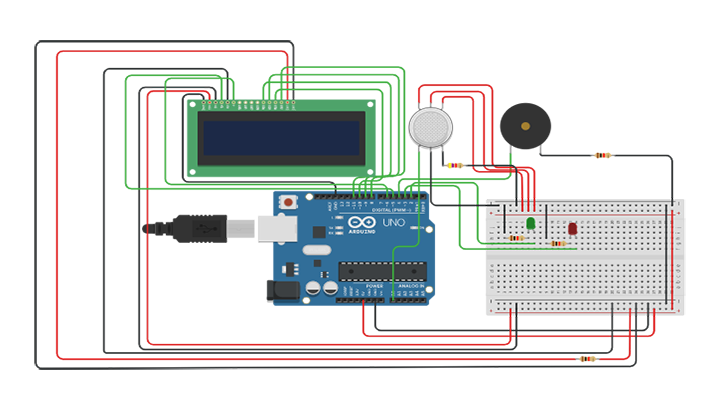AI-Enabled IoT mobile application for early maize plant disease detection
Currently, Rwandan farmers rely on their naked eyes to diagnose maize illnesses. Because some plant illnesses are difficult to detect, observation needs extensive training and experience. Another method involves sending samples to a lab for testing; this takes money and time. To overcome the limitations of these techniques IoT and AI technologies are excellent must-haves for increasing farming productivity; they may assist farmers take precautions to prevent losses and provide decent food security in various regions of the nation.
In this thesis, an AI-enabled IoT mobile application for early maize plant disease detection was proposed to assist farmers in automatically detecting maize plant illnesses at an early stage of plant growth. To detect plant illness, an image of the plant is captured with the camera and uploaded to a local server using an Android application, the plant image is subjected to various image processing algorithms at the server to determine the disease, and the discovered disease is delivered back to the farmer's mobile application with remedies. Our system was assessed using a number of performance measures, including classification accuracy and processing speed. When it comes to differentiating the three most common disease groups that damage maize leaves, the model has an overall classification accuracy of 80%.
Related project idea for free
IoT-based Air Quality Monitoring System in Public Transport
Public transportation is primarily used by the vast majority of people in low- and middle-income countries for daily activities. Public buses, for instance, are the primary mode of transportation in Kigali (Rwanda), as they are more cost-effective than alternative options including private cars, mot...
Read more>>Smart school bus monitoring and notification system using RFID, GPS and ESP8266 NodeMCU
While employing technology in the classroom and school administration is the idea behind smart education, there are other aspects of education that also need to be automated. One such aspect is comforting parents while sending their children to school. One major issue in the City of Kigali is the la...
Read more>>Smart car Parking System in Kigali - Rwanda
This dissertation examines an IoT-based smart car parking system used in Rwanda. Rwanda is a nation that has to be intelligent in a variety of areas, including agriculture, health, and transportation, particularly in terms of parking. People are affected by a variety of parking issues, including tim...
Read more>>Accident Detection Based On IoT
Road accidents frequently result in damage, injuries, or fatalities and happen unexpectedly and without warning. Through the elimination of the time lag between the accident's incidence and the initial medical emergency, this research aims to lower the fatality rates following an accident. A mac...
Read more>>IoT based toxic gas detection and level of landfill - Case study: NDUBA LANDFILL
As the world's population expands, so does the amount of waste. Most landfills release harmful pollutants into the air and into the homes of those who live nearby. Effective landfill management is necessary to protect both the environment and human health and wellbeing. The findings of the litera...
Read more>>
